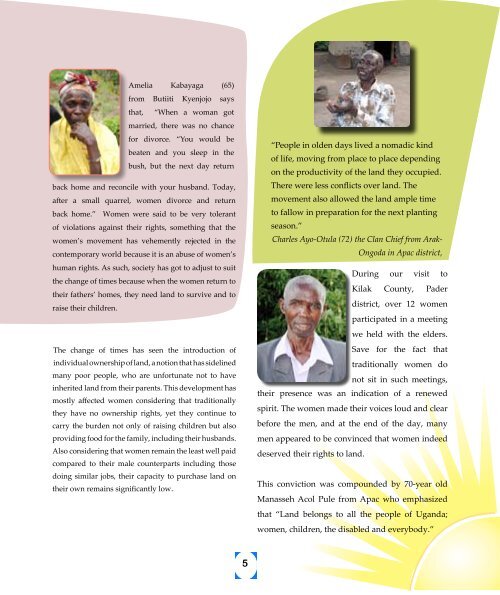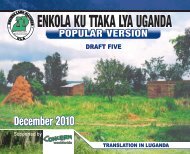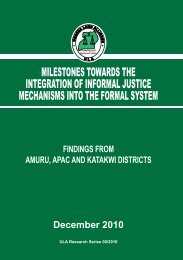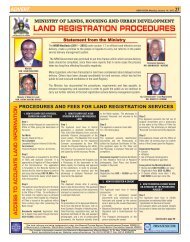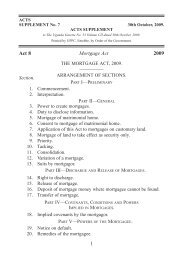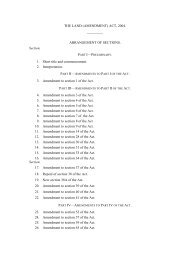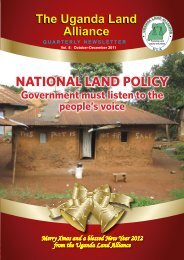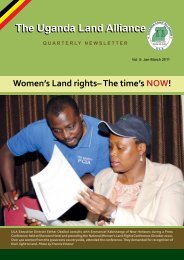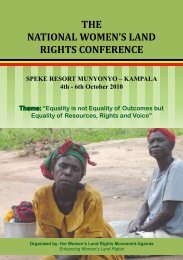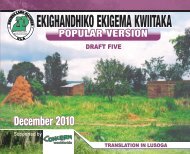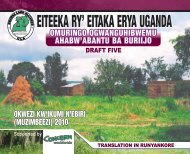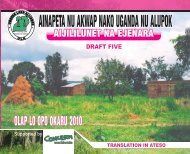A Woman & her Land - Uganda Land Alliance
A Woman & her Land - Uganda Land Alliance
A Woman & her Land - Uganda Land Alliance
- No tags were found...
Create successful ePaper yourself
Turn your PDF publications into a flip-book with our unique Google optimized e-Paper software.
Amelia Kabayaga (65)from Butiiti Kyenjojo saysthat, “When a woman gotmarried, t<strong>her</strong>e was no chancefor divorce. “You would bebeaten and you sleep in thebush, but the next day returnback home and reconcile with your husband. Today,after a small quarrel, women divorce and returnback home.” Women were said to be very tolerantof violations against their rights, something that thewomen’s movement has vehemently rejected in thecontemporary world because it is an abuse of women’shuman rights. As such, society has got to adjust to suitthe change of times because when the women return totheir fat<strong>her</strong>s’ homes, they need land to survive and toraise their children.The change of times has seen the introduction ofindividual ownership of land, a notion that has sidelinedmany poor people, who are unfortunate not to havein<strong>her</strong>ited land from their parents. This development hasmostly affected women considering that traditionallythey have no ownership rights, yet they continue tocarry the burden not only of raising children but alsoproviding food for the family, including their husbands.Also considering that women remain the least well paidcompared to their male counterparts including thosedoing similar jobs, their capacity to purchase land ontheir own remains significantly low.“People in olden days lived a nomadic kindof life, moving from place to place dependingon the productivity of the land they occupied.T<strong>her</strong>e were less conflicts over land. Themovement also allowed the land ample timeto fallow in preparation for the next plantingseason.”Charles Ayo-Otula (72) the Clan Chief from Arak-Ongoda in Apac district,During our visit toKilak County, Paderdistrict, over 12 womenparticipated in a meetingwe held with the elders.Save for the fact thattraditionally women donot sit in such meetings,their presence was an indication of a renewedspirit. The women made their voices loud and clearbefore the men, and at the end of the day, manymen appeared to be convinced that women indeeddeserved their rights to land.This conviction was compounded by 70-year oldManasseh Acol Pule from Apac who emphasizedthat “<strong>Land</strong> belongs to all the people of <strong>Uganda</strong>;women, children, the disabled and everybody.”5


